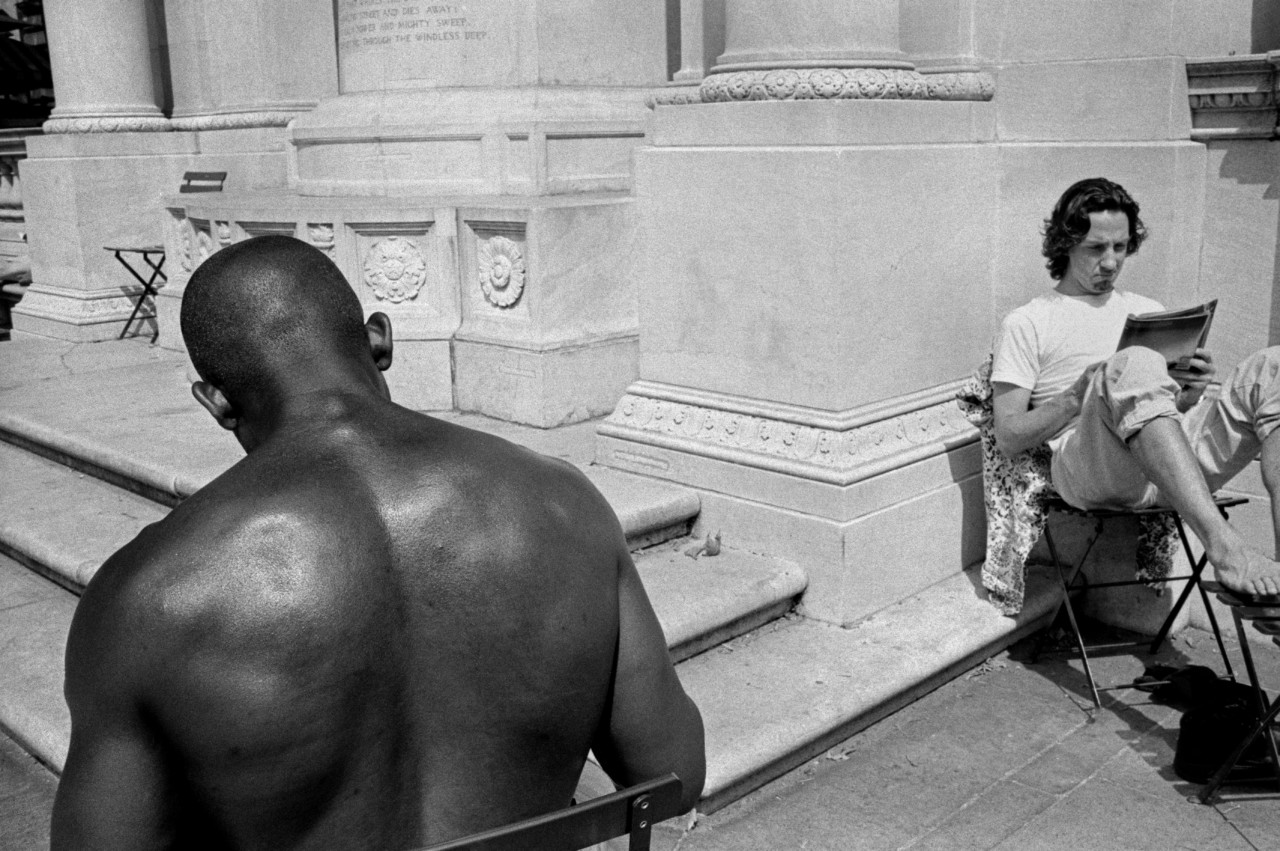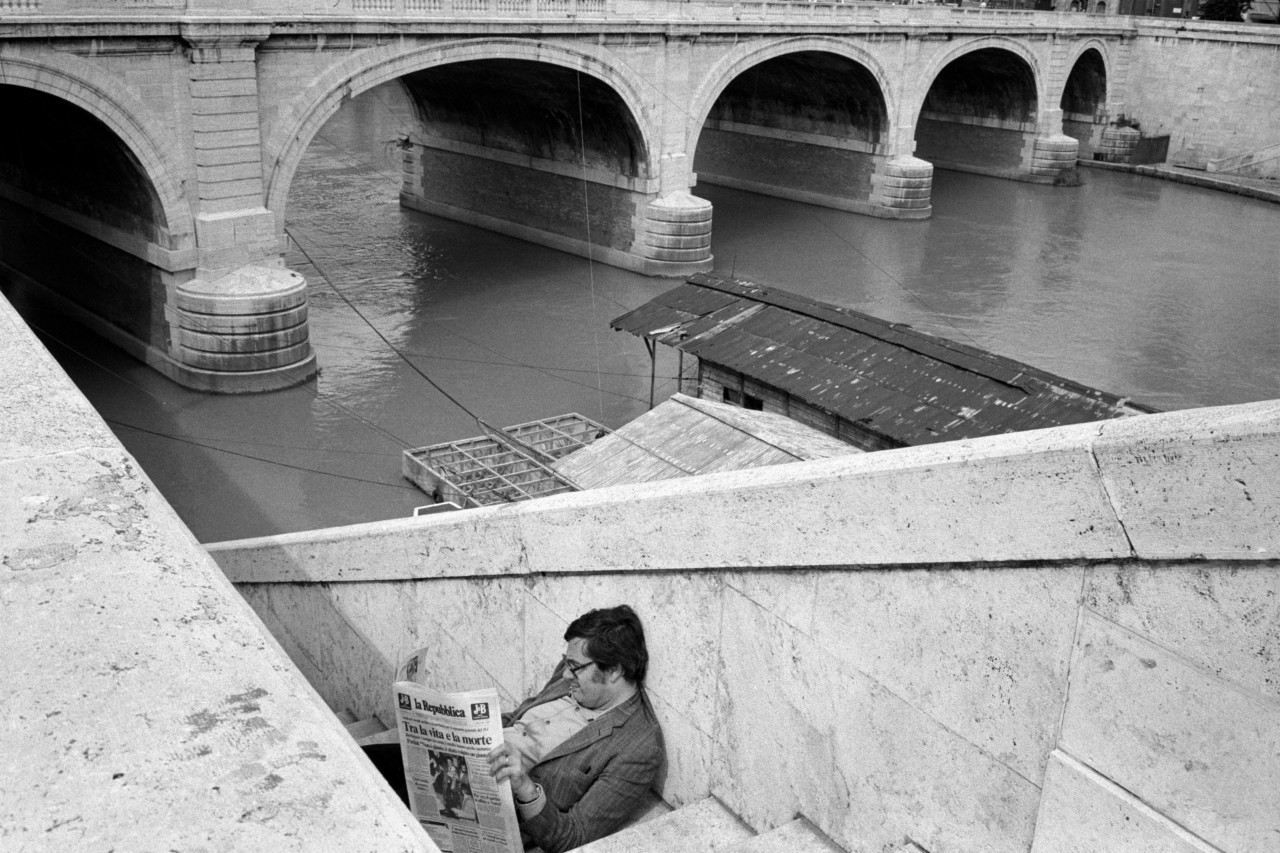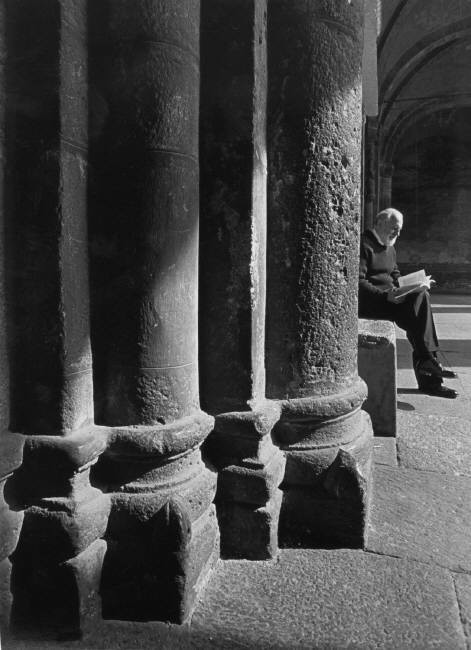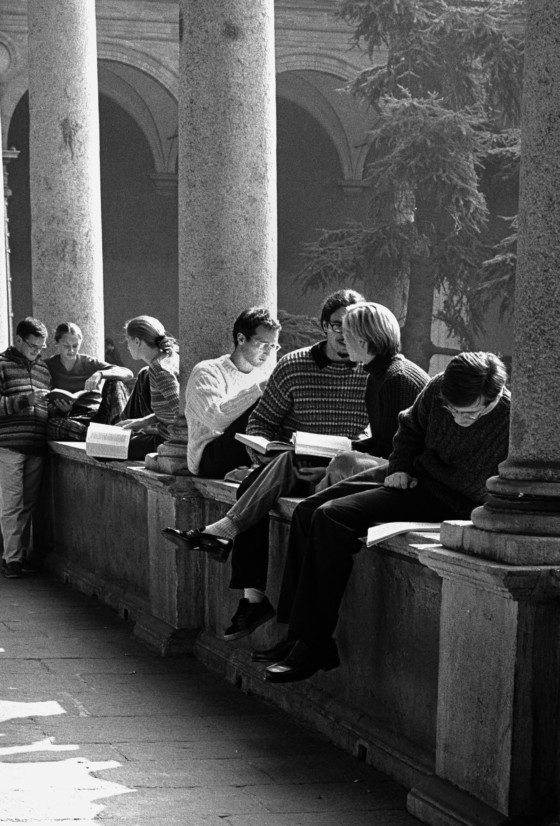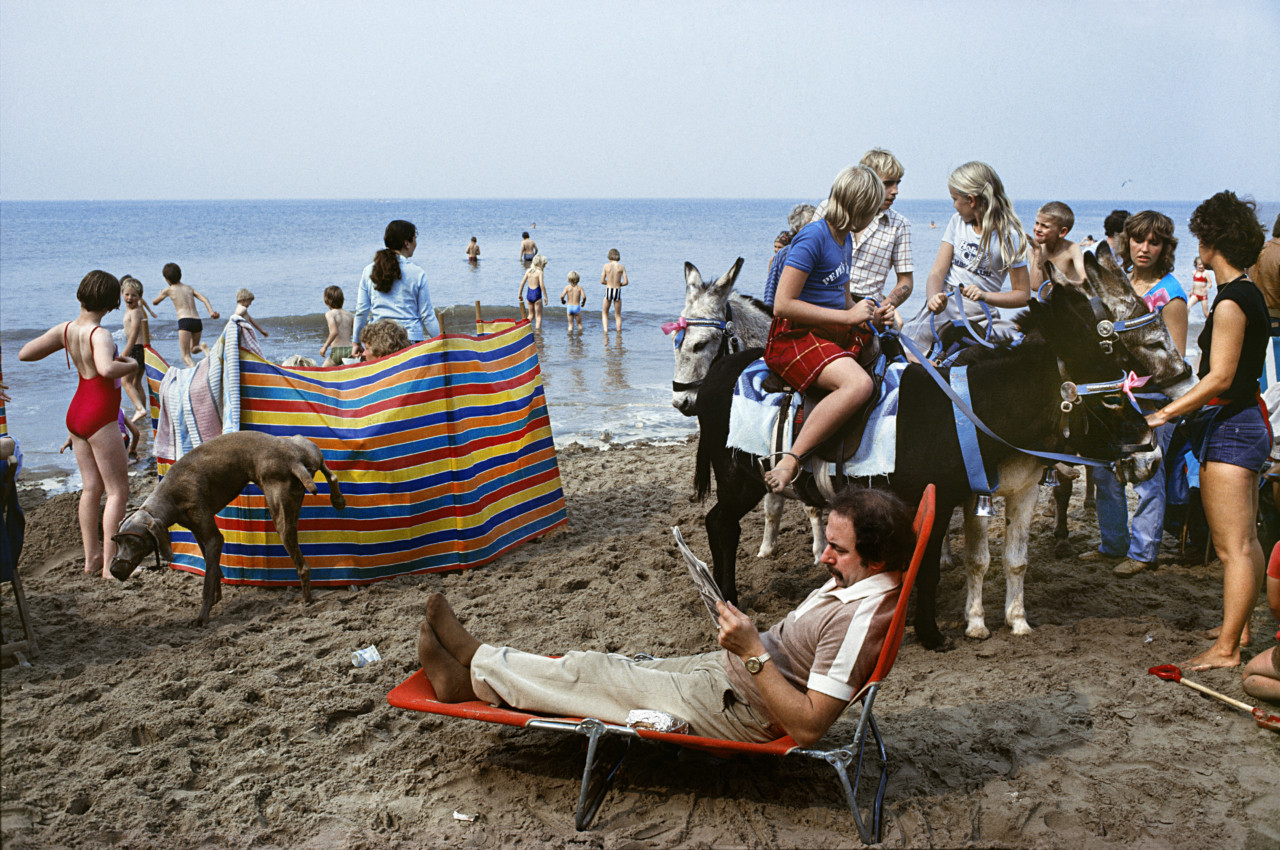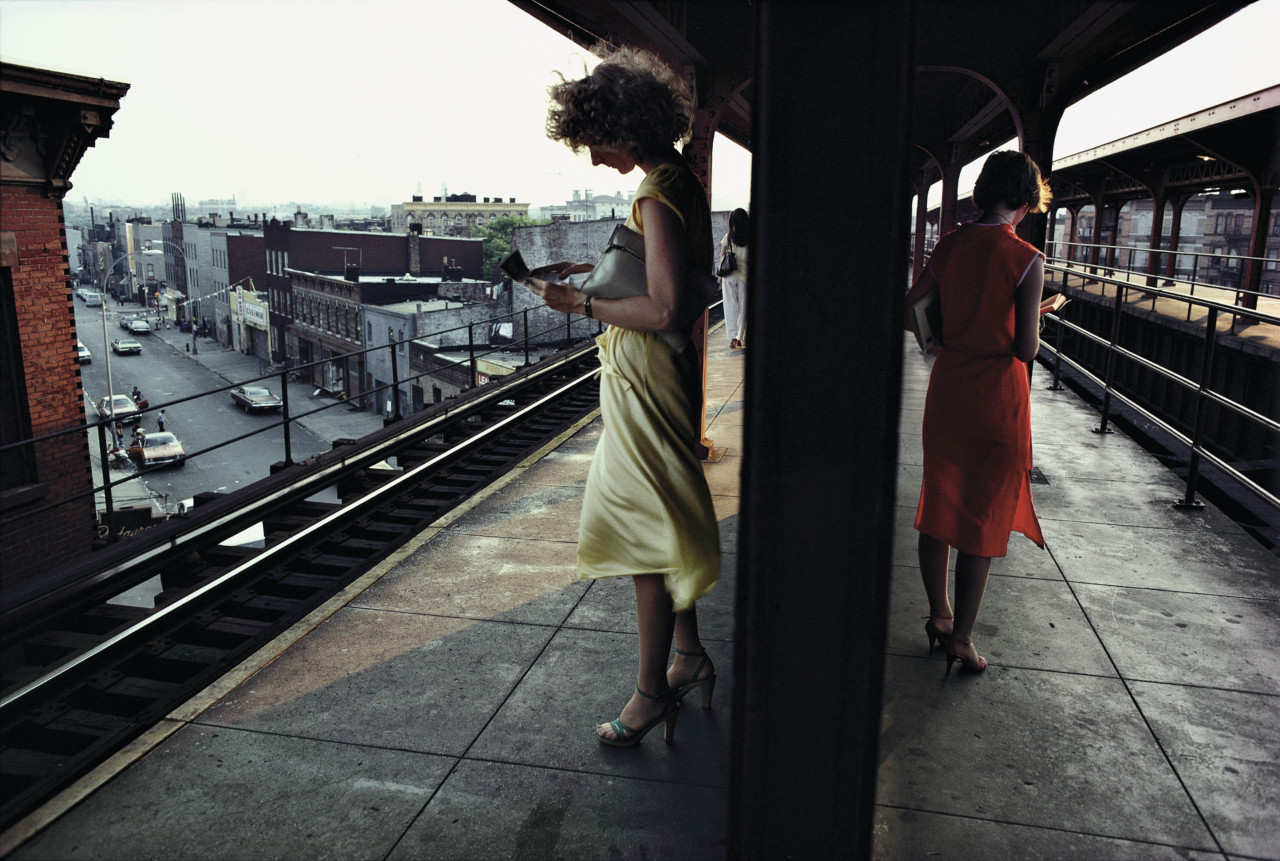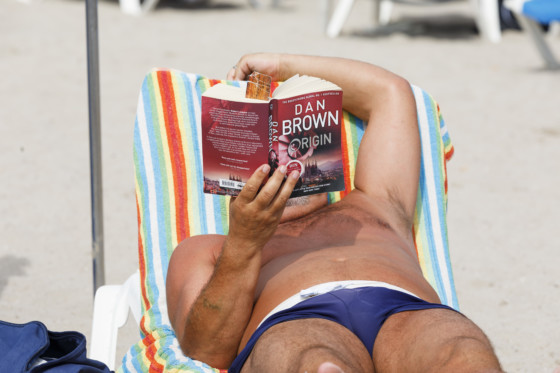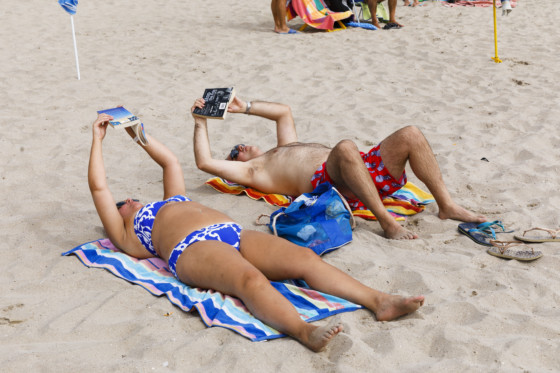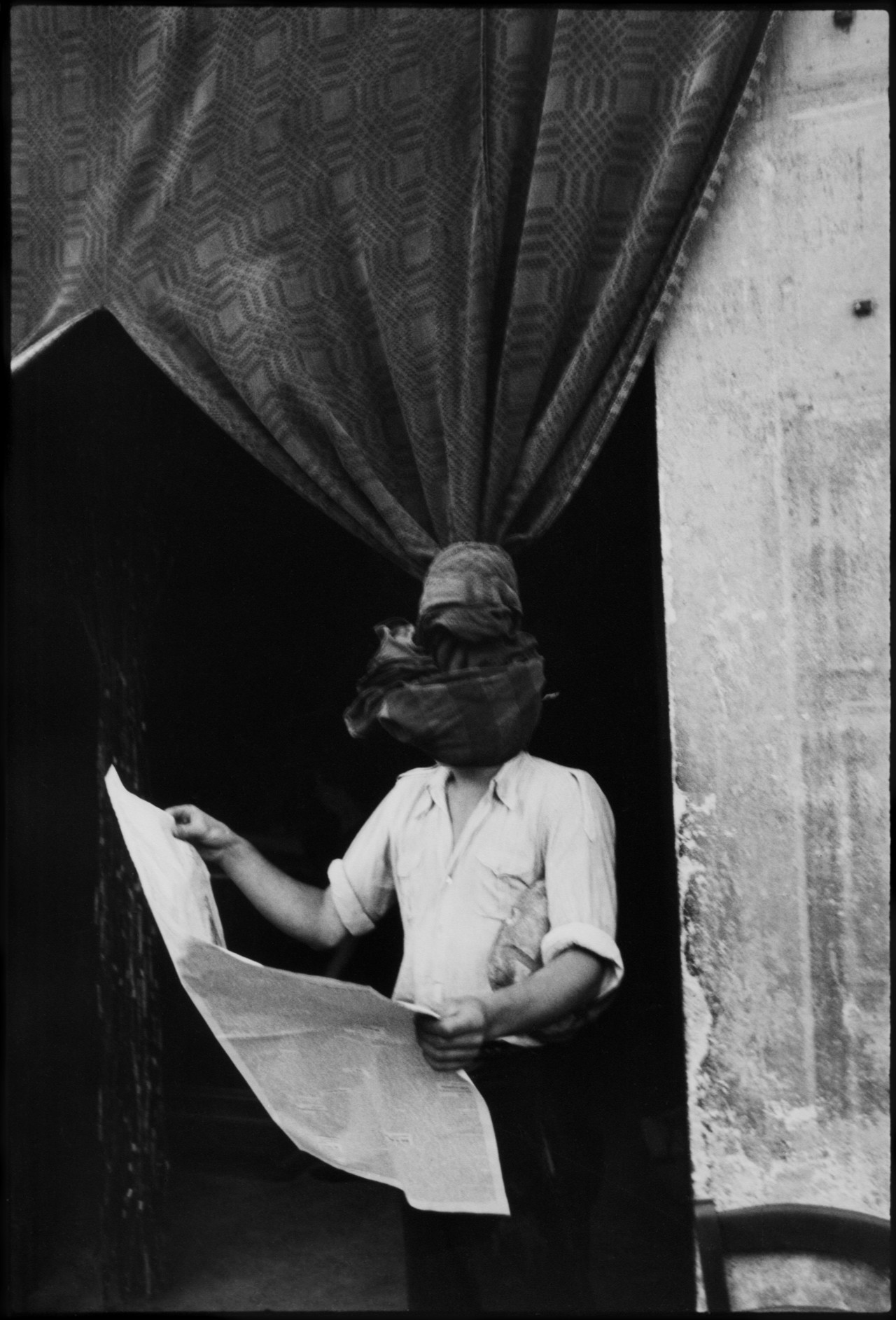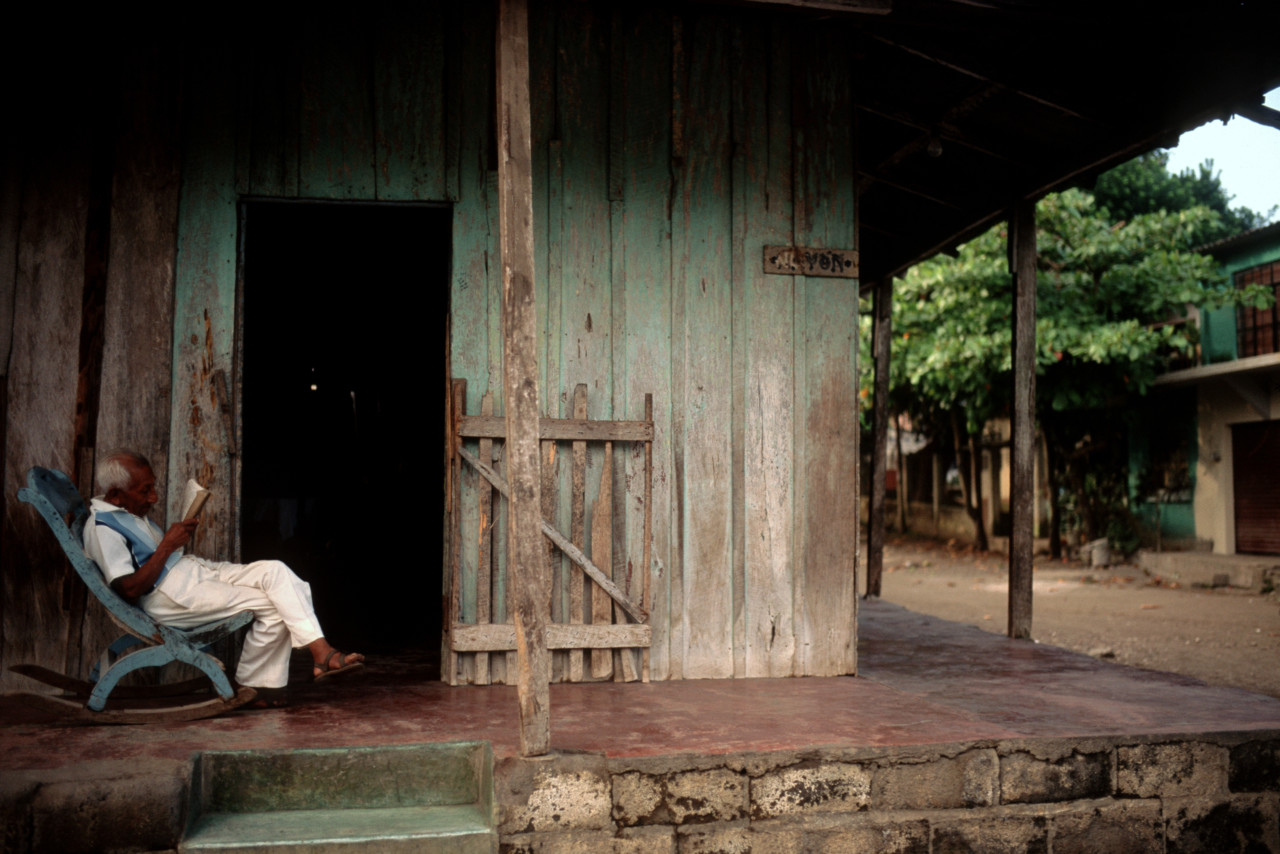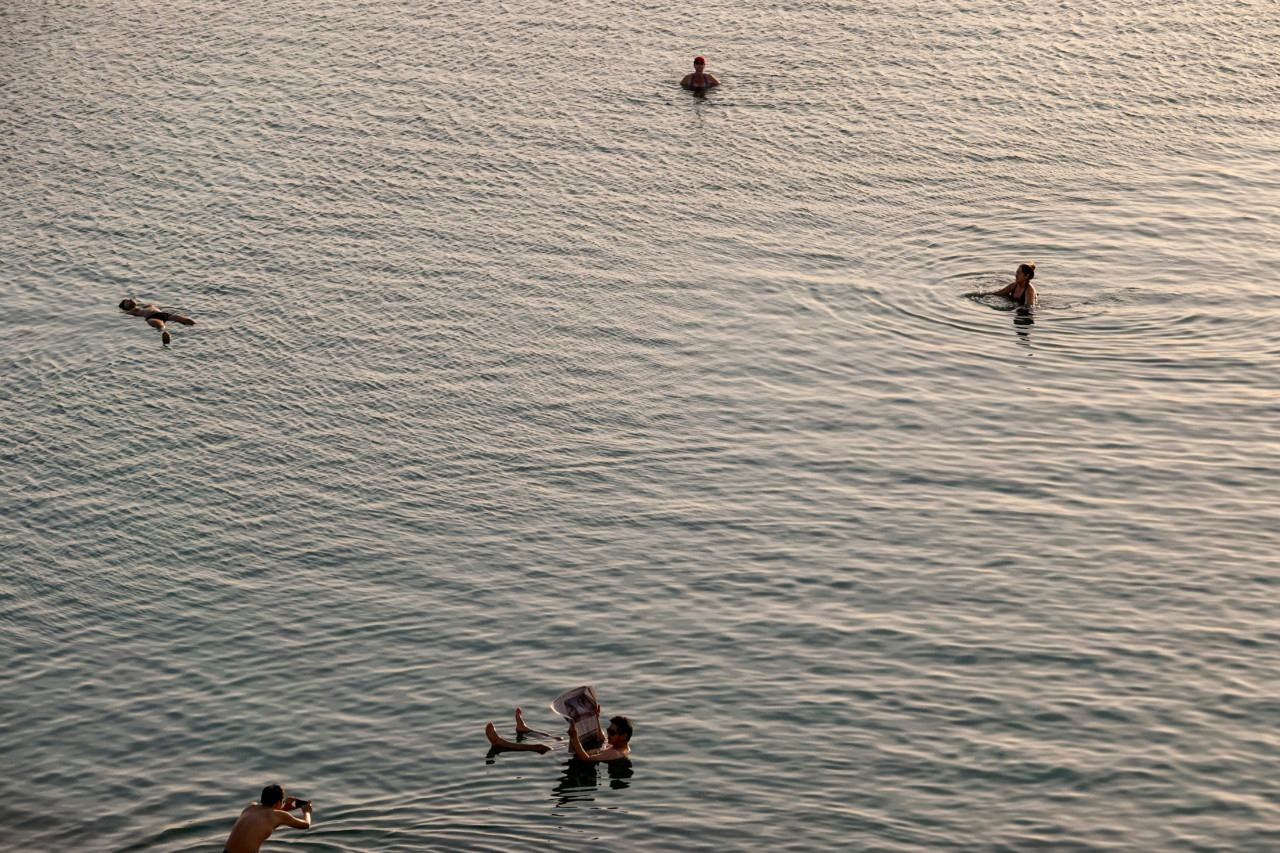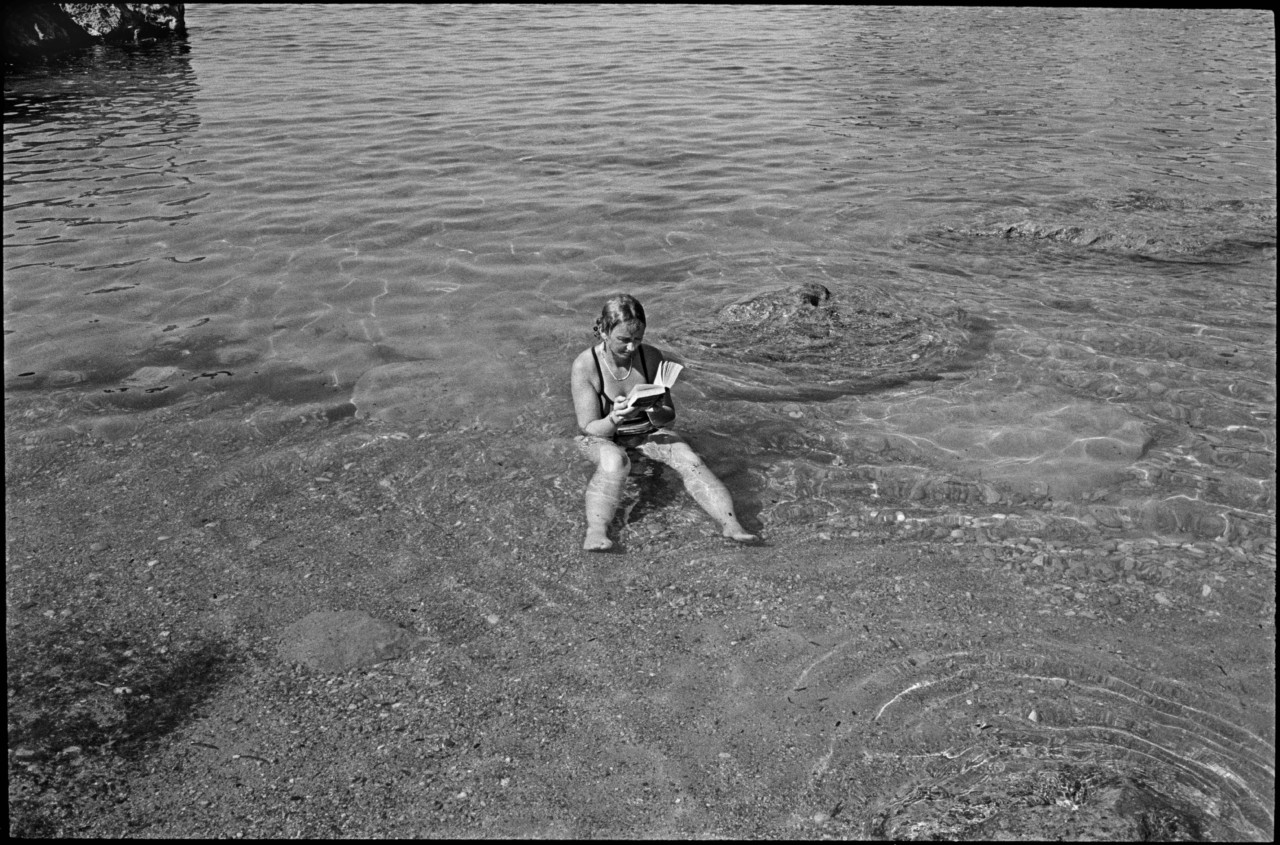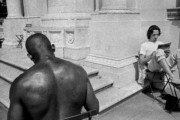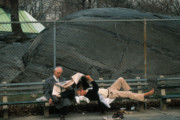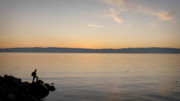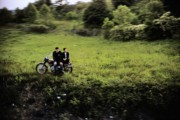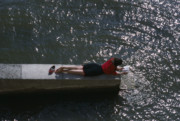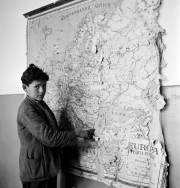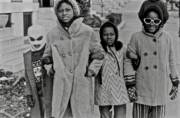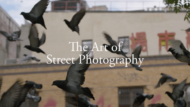The Magnum Summer Reading List, 2019
Magnum photographers suggest reading material for the summer, from old favourites to new discoveries, comforting classics and weighty reads
As preparations for summer vacations begin the familiar search for something to read accompanies efforts to rationalise packing regimen and to avoid checking weather forecasts. Over the last two years Magnum photographers have offered their recommendations for reading matter, spanning a broad variety of titles and formats from fairy-tales to history, to true crime and romance. This year’s list covers classics, international best-sellers, and non-fiction. Here we share the selected titles, either freshly read for the first time, or dusted-off from the shelves of Magnum’s members for another go round.
During summers I read mostly historical fiction and detective mysteries. Not too high brow but tis the season…
Winds of War by Herman Wouk. This short series of historical novels was huge in its time, but has faded over time. Wouk recently passed away and I personally hope this master storyteller gets a bit of his due again.
The Shardlake Series by CJ Sansom, is an excellent series of detective novels set in the time of Henry VIII.
First Man in Rome by Colleen McCullough is another set of historical novels, this time set in Ancient Rome, and largely dealing with power struggles in the senate. A massive and compelling set of main and secondary characters makes it a bit dizzying at times, but well worth it.
Tristram Shandy by Laurence Sterne. I would like to recommend this book, which I keep re-reading, and [my wife] Orna would like to add her updated choice: Michael Chabon’s latest book, >Moonglow. Somehow both books combine fantasy, reality, history, a lot of humour all together.
A Time to Every Purpose Under Heaven by Karl Ove Knausgård, for those who are interested in Kanusgård, but don’t have the the patience for 20,000 pages of his personal memoirs. This spring I listened my way through over 60 hours of War and Peace by Tolstoy, which I hadn’t read, and really enjoyed it in all its epic scale. >Two Sisters by Åsne Seierstad, is fascinating, about two sisters from suburban Norway who join ISIS, and their father’s efforts to get them home. And finally Sapiens and Homo Deus by Yuval Harari.
At the moment I’m reading Tombland, by C J Sansom. It’s the latest in a series by Sansom covering Britain during the period from the reign of Henry V111 to Elizabeth I. If you’re a fan of Game of Thrones, you’ll see where George Martin is coming from! Not one to be carried on travels though, weighs more than an old style Nikon!
As I Lay Dying by William Faulkner
I didn’t want to pick a famous book but I can’t help it. It’s one I’ve been going back to over and over as I’ve traveled back and forth to Mississippi to make work. I read it for the first time when I lived there and was blown away not only by the way it cut to the core of things that felt impossible to speak about out loud, but also by the way its narrative seemed to emerge like a phantom from the cacophony of voices speaking about nothing in particular.
"The novel turns on one act, one decision, and everything else is a glorious ripple over the sea that cannot judge"
- Stuart Franklin
Candide by Voltaire
I will properly be reading Candide by Voltaire again. I wrote my highschool thesis about it and stumbling through a chaotic world full of disasters looking for the best of all worlds seems still pretty appropriate.
Lord Jim by Joseph Conrad
The summer reading book I would recommend is Joseph Conrad’s >Lord Jim. It is literature’s equivalent of the decisive moment. The novel turns on one act, one decision, and everything else is a glorious ripple over the sea that cannot judge, peopled by those who can and will.
87th Precinct series by Ed McBain and the Inspector Banks series, by Peter Robinson
My summer reading list is divided into two halves: my ‘camera bag’ books and my more taxing reading from a separate shelf at home. I am at the age where, when working, I need a lot of rest time – usually at a café. Consequently, I need a book that has interest – usually from a descriptive point of view – but which is easy to stop reading but then take up again. My two favourite series are Ed McBain’s 87th Precinct novels, and Peter Robinson’s Inspector Banks novels. There are so many of each that my appalling memory is an advantage for when I have finished either series: I can start again, as I don’t realize I have read them.
Homeland by Fernando Aramburu
Definitely one of the recent masterpieces I have read is Homeland by Fernando Aramburu. I obviously suggest reading it in Spanish, for those who can.
Fierce Fairytales by Nikita Gill
I am currently reading a book of fairytales. I’m not sure if it’s because they are actually written for adults or perhaps because I am trying to make up for the magic I never quite experienced as a kid, but I often find myself drawn to children’s books. There’s a story in this collection, Boy Lost, a tale of two boys who find love and experience it in different ways, only to lose each other on the journey of finding themselves. I’ve read and reread this story a handful of times, always wanting to change the ending, which seems inevitable from the start.
The Man Who Loved Dogs by Leonardo Padura
The book I would recommend is The Man Who Loved Dogs by Leonardo Padura. It is a wonderfully built novel that connects the strange dots between Trotsky’s assassination in Mexico and the Spanish Civil War, all in the middle of a very well-built scenario that has communism in the background. The story navigates from individual aspirations to big ideas that shaped modern history, and gives a very credible account of how things happened through the individual experience of a hidden historical character: Trotsky’s murderer.
Lectures on Literature by Vladamir Nabokov, To Be a Machine by Mark O’Connell, and 21 Lessons for the 21st Century by Yuval Noah Hariri.
Our Mutual Friend by Charles Dickens, The Woman in White by Wilkie Collins, and America in the British Imagination (1945 to the Present) by John F. Lyons.
I tend to prefer to read fiction, since a good book – beautifully written and with a ripping yarn – transports me from the pressures of my working life.
I’m particularly fond of the English Victorian novelists, and I especially like to read them while sitting in our Victorian house in Brighton. Somehow they make the bricks and mortar surrounding me come to life and I can more readily imagine the family that once lived here when the house was first built back in 1890.
I’m continuing with my ambition to read every Dickens novel. I recently finished Our Mutual Friend, his last completed book, a savage satire on wealth or, more specifically, the pursuit of money. It’s very long and complex, with a plethora of unforgettable characters, like Jesse “Gaffer” Hexam, who scours the Thames for dead bodies with pockets to empty, or the deliciously snobbish Mr Podsnap. It’s now firmly installed at the top of my list of all the great man’s works… I felt utterly bereft when it was over. But I followed it with something almost as good, The Woman in White by Wilkie Collins, which is widely believed to be the first mystery novel. Co-incidentally, Collins and Dickens were great friends.
Meanwhile, I’m continuing to read various histories of the United States, to aid me in my decade-long project, Good Morning, America. The most useful has probably been America in the British Imagination (1945 to the Present) by John F. Lyons, since it deals directly with the American cultural imperialism I experienced first-hand while growing up in the British midlands during the 1960s, which is the driving force behind my continuing fascination with the US.
"I read the last page of the novel and it was as if I was allowed to see a certain kind of light for the first time"
- Eli Reed
V and The Crying of Lot 49 by Thomas Pynchon
I am reading the Thomas Pynchon novels, V and The Crying of Lot 49. I read both of the books before, when I was in my twenties. The Crying of Lot 49 was the first of Pynchon’s works and it was a revelation for me. I read the last page of the novel and it was as if I was allowed to see a certain kind of light for the first time. It led me to V. My first one-person photographic exhibition in 1975 was inspired by words from this work, “Meanwhile, back in London, the whole sick crew were—” which eventually became an inspiration for the exhibition title, The Whole Sick Crew. It is always interesting to look back into the past and review what helped you turn creative corners.
Things [Cousas] by Alfonso R. Castelao
Cousas (“things” in Galician) is the book that represents Castelao’s whole vision by mixing very short stories – anecdotes, with an anthropological quality, turned into something simple, closer to poetry – accompanied by caricatures, and drawings. Castelao is capable of elevating illustration to the highest form of art, of representing the human (Galician) condition… people’s irony, intelligence and sarcasm while being oppressed.
The Two Kinds of Decay by Sarah Manguso. A beautiful clear book on illness.
In the Distance by Hernán Diaz. A wonderful and strange Western adventure.
The Hidden Life of Trees by Peter Wohlleben. I loved learning how trees communicate and the way he writes of them with so much love and respect and curiosity.
Let Us Now Praise Famous Men by James Agee and Walker Evans. I am currently reading it for the first time and I’m in complete awe…
"I think this book opens up interesting conversations about equality"
- Lindokuhle Sobekwa
Maoism: A Global History by Julia Lovell
“I’m reading this as I’m working on my PhD which relates to leftist histories, following 12 years living in China as a foreign correspondent and then independent photographer-artist. It’s a very long overdue look at the spread — indeed, the active export — of Maoism around the world. Julia Lovell, a historian based at Birkbeck College London, has done a remarkable job of great breadth of research and writing the book in a lively and accessible way. Her knowledge of China and Chinese shining through, Lovell traces the tentacles of the ideology of Maoism to as far as Malaya, Cambodia and Nepal to the Shining Path movement in Peru. She also explores a bit of what has always fascinated (and troubled me): how the left in the West was enamoured of Chairman Mao even as the worst excesses of the Cultural Revolution in China were becoming known. Maybe not a book to take to the beach, but one for reading at home, in an armchair.”
We Should All Be Feminists by Chimamanda Ngozi Adichie
A debate I had with my girlfriend led me to read more on what feminism is all about, and Chimamanda gives a clear description of this term. I also like the the part where she says “I would like to ask that we begin to dream about and plan for a different world. A world of happier men and happier women who are truer to themselves. And this is how to start: We must also raise our daughters differently and we must also raise our sons differently.” I think this book opens up interesting conversations about equality.
I originally resisted reading Karl Ove Knausgård’s new book, So Much Longing in So Little Space: The Art of Edvard Munch. While I’m a fan of Knausgård, I’ve always found Munch overwrought to the point of being cliché. It turns out Knausgård feels the same way. By focusing on Munch’s later and much less known work, Knausgård brought Munch alive for me.
The Middle Passage: Impressions of Colonial Societies by V. S. Naipaul
I read an early book by V. S. Naipaul, The Middle Passage, which concerns a journey through the West Indies and Latin America, which he describes and dissects with great compassion and a sharp humour, and made me remember what a great writer he was.
Mythos: A Retelling of the Myths of Ancient Greece by Stephen Fry
I’m about to go on honeymoon to Greece, so catching up on the old stories with Stephen Fry’s Mythos. It’s the perfect summer read.


